Economic Legal

How does the European Union approach climate change through its legal frameworks ?
The European Union has been at the forefront of addressing climate change through its legal frameworks. It has adopted a comprehensive and integrated approach that includes legislation, regulations, directives, and other legal instruments to mitigate greenhouse gas emissions and adapt to the impacts of climate change. This approach is based on the principles of sustainable development, prevention, polluter pays, and subsidiarity. Some key legal frameworks for climate change in the EU include the European Climate Change Programme, Emissions Trading System, Renewable Energy Directive, Energy Efficiency Directive, and Climate Action and Resilience Package. The implementation and enforcement of these legal frameworks are ensured through monitoring and reporting, evaluation and review, and enforcement actions. Despite facing challenges such as political will, technological innovation, and international cooperation, there are also opportunities for the EU to further strengthen its approach to climate change through legal frameworks by exploring innovative financing mechanisms, collaborative governance, and global leadership.

What are the challenges in enforcing international environmental laws related to climate change ?
Enforcing international environmental laws related to climate change faces challenges such as a lack of global leadership and coordination, inadequate legal frameworks, economic and developmental imbalances, scientific uncertainty and information gaps, socio-cultural factors, and technological and infrastructure limitations. These issues require cooperation among nations, stronger legal frameworks, balanced economic development, improved scientific understanding, cultural sensitivity, and technological advancement to overcome.

What challenges do climate refugees face when migrating to new countries ?
Climate refugees face various challenges when migrating to new countries, including social integration, economic stability, and legal recognition. Social issues involve cultural integration, access to education, and building social support networks. Economic challenges include finding employment, achieving financial stability, and accessing basic services. Legal issues encompass recognition as refugees, legal status and rights, and navigating the asylum process. Addressing these challenges requires efforts from sending and receiving nations, as well as international organizations.

What are the legal implications of using smart contracts ?
Smart contracts, self-executing contracts with terms written in code on a blockchain, raise legal questions about enforceability, jurisdiction, privacy, security, and regulatory compliance. Best practices include consulting a legal expert, clearly defining terms, considering jurisdiction, and prioritizing privacy and security.

What challenges do countries face when creating and enforcing climate policies ?
The challenges in creating and enforcing climate policies are multifaceted, involving political, economic, technological, social, legal, international, adaptation, and information-related dimensions. Balancing environmental priorities with other policy areas, navigating economic implications like job displacement and transition costs, developing the necessary technology and infrastructure, gaining public acceptance, establishing effective legal frameworks, fostering international cooperation, planning for resilience and adaptation, and ensuring access to reliable data are all critical considerations. These factors often intersect and compound the complexity of crafting and implementing effective climate policies.
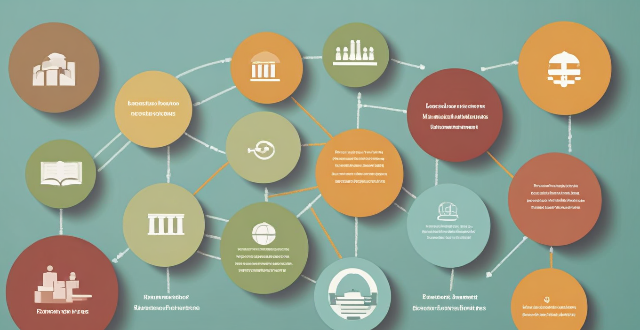
What are the legal implications of failing to meet climate targets set by international agreements ?
Failing to meet climate targets set by international agreements can have significant legal implications, including liability for damages caused by climate change, violation of international law, and domestic legal consequences. These implications can vary depending on the specific agreement and jurisdiction in question, but some common consequences include public and private claims for damages, trade sanctions, loss of funding or aid, international dispute resolution, regulatory compliance, shareholder pressure, and reputational risk.

How can we balance economic development and water resource protection ?
Water resources are crucial for economic development but must be protected to ensure sustainability. Strategies for balancing these goals include prioritizing sustainable practices, implementing regulatory measures, fostering collaboration and partnerships, investing in infrastructure and technology, and educating and creating awareness. By adopting these approaches, we can achieve a balance between economic growth and water conservation, ensuring long-term sustainability for all.

How do women entrepreneurs navigate the legal aspects of starting a business ?
Starting a business as a female entrepreneur involves navigating various legal considerations. This guide offers strategies for handling these aspects, including understanding legal frameworks, protecting intellectual property through trademarks and copyrights, drafting contracts, complying with employment laws, ensuring financial compliance, and managing risks with insurance. By addressing these components systematically, women entrepreneurs can establish a solid foundation for their businesses while minimizing legal risks and ensuring smooth operations.
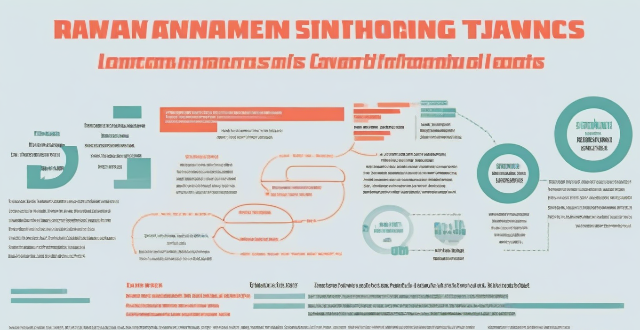
What are the legal aspects to consider in credit management ?
Credit management involves various legal considerations, including contract law, consumer protection laws, privacy laws, bankruptcy laws, state and federal laws, and collections practices. Businesses must ensure that their contracts are legally binding, disclose all relevant information about their credit products, protect customer data, understand bankruptcy laws, comply with usury laws and licensing requirements, and adhere to the Fair Debt Collection Practices Act. By considering these legal factors, businesses can maintain strong relationships with their customers while minimizing financial risks.

What legal resources are available for women who face discrimination or abuse ?
This text provides a summary of legal resources available to women who are facing discrimination or abuse. It outlines various government agencies that enforce laws related to gender-based discrimination and violence, non-governmental organizations that offer support and information, legal aid organizations that provide free or low-cost legal services, and online resources that offer legal information and self-help guides. The text emphasizes the importance of seeking help from these sources if one is experiencing any form of mistreatment or inequality based on their gender.

Can women serve on juries and hold positions of power within the legal system ?
The role of women in the legal system has evolved significantly over time. Women are now allowed and encouraged to serve on juries, bringing diversity of perspectives, increased trustworthiness, and improved decision-making. However, women still face challenges in achieving parity with men in holding positions of power within the legal system. Efforts such as affirmative action programs, mentorship programs, and flexible work arrangements have been implemented to address these issues.

What are the legal requirements for providing PPE to employees ?
Personal Protective Equipment (PPE) is essential in ensuring the safety and health of employees in various industries. Employers have a legal obligation to provide their employees with appropriate PPE, which must comply with specific regulations and standards set by organizations such as OSHA, the EU, Safe Work Australia, and CSA. Employers must conduct a hazard assessment, select appropriate PPE, ensure proper fit and comfort, provide training and education, and establish a system for maintaining and replacing PPE. By fulfilling these legal requirements, employers can help protect their employees from workplace hazards and promote a safe working environment.

Are there any legal requirements for installing a burglar alarm system ?
Legal Requirements for Installing a Burglar Alarm System Security is an essential aspect of modern life, and installing a burglar alarm system can significantly enhance the safety of homes and businesses. However, there are legal requirements that must be met before installing such systems. This article discusses the legal requirements for installing a burglar alarm system, including obtaining permits and licenses, checking insurance requirements, and adhering to local regulations and ordinances. By complying with these requirements, you can ensure that your burglar alarm system provides effective security while meeting all legal obligations.

Are there any legal requirements for installing a home security system ?
Home security systems are becoming increasingly popular as homeowners seek to protect their property and loved ones from potential threats. However, before installing a home security system, it is important to understand the legal requirements that may apply in your area. In this article, we will explore some of the key legal considerations when installing a home security system. Local ordinances and regulations, privacy laws, insurance requirements, and maintenance and upkeep are all important factors to consider when installing a home security system. By understanding these legal considerations, you can make informed decisions about protecting your property and loved ones while staying within the bounds of the law.

What are the legal frameworks and policies supporting the establishment of ecological protection areas ?
The establishment of ecological protection areas is supported by various legal frameworks and policies that aim to conserve biodiversity, protect ecosystems, and promote sustainable development. These frameworks and policies are essential for ensuring the effective management and protection of ecological protection areas. Some key legal frameworks and policies supporting the establishment of ecological protection areas include international legal frameworks such as the Convention on Biological Diversity (CBD) and the United Nations Convention to Combat Desertification (UNCCD), national legal frameworks such as National Biodiversity Strategies and Action Plans (NBSAPs) and national environmental policies, regional legal frameworks such as regional conservation agreements, and sector-specific legal frameworks such as forestry laws and regulations and wildlife conservation laws and regulations. When establishing ecological protection areas, it is essential to follow best practices such as conducting thorough scientific research, engaging local communities in the planning and management process, developing clear management plans, monitoring ecological protection areas regularly, and promoting sustainable tourism activities within them.

What legal considerations should fans be aware of when planning a support event for an artist ?
When organizing a support event for an artist, fansWhen organizing a support event for an artist, fans avoid infringement of fans must consider legal aspects to avoid infringement of rights and unintended issues. Key considerations include intellectual property rights such as music copyright and trademarks; public performance licenses; venue agreements; necessary permits and regulations; privacy and consent; liability and insurance; transparent promotion and marketing; and clear ticketing policies. Consulting with legal professionals is recommended to ensure all aspects are legally sound.
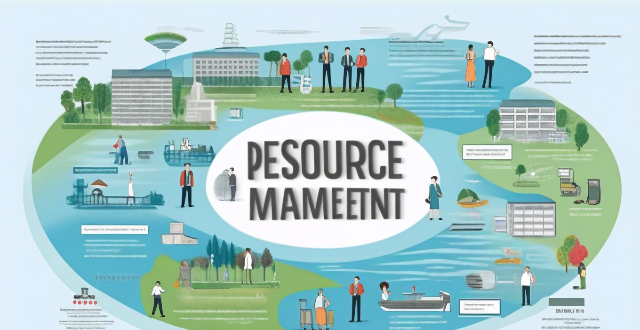
What are the legal and policy frameworks for water resource management at the national and international levels ?
Water resource management is a critical issue that affects the sustainability of ecosystems, the economy, and human well-being. To address this challenge, various legal and policy frameworks have been established at both national and international levels. At the national level, water resource management is governed by a combination of laws, regulations, and policies aimed at ensuring equitable access to water resources, protecting the environment, and promoting sustainable development. International legal and policy frameworks play a crucial role in addressing transboundary water issues and promoting global cooperation on water resource management. Effective water resource management requires a comprehensive approach that encompasses both national and international legal and policy frameworks.

What are some common barriers to achieving climate justice, and how can we overcome them ?
Achieving climate justice faces barriers like lack of awareness, economic disparities, and political polarization. Strategies to overcome these include education campaigns, economic policies supporting low-income households, and fostering dialogue among stakeholders. Other challenges are fossil fuel dependency, infrastructure issues, and legal hurdles, which can be addressed by promoting renewable energy, prioritizing resilient infrastructure investments, and advocating for stronger environmental regulations.

How can climate governance address the issue of climate refugees ?
Climate change is causing people to be displaced from their homes, leading to the emergence of "climate refugees." These individuals face challenges such as lack of legal recognition, inadequate response mechanisms, resource scarcity, social integration difficulties, and economic impacts. To address this issue, a comprehensive approach to climate governance is needed, which includes developing frameworks for international agreements and legal recognition, establishing funding mechanisms, building adaptation and resilience, managing migration, empowering communities, offering skill development, ensuring access to health services, coordinating policies, and continuously monitoring and evaluating policies.

Can economic indicators accurately predict a recession ?
Economic indicators, such as GDP growth rate, employment rate, inflation rate, interest rates, consumer sentiment, and manufacturing/service sector activity, are used to gauge the health of an economy. While these indicators provide valuable insights, their ability to predict a recession is not absolute due to limitations like lagging indicators, false signals, external factors, and policy responses. A combination of indicators and a probabilistic approach can improve accuracy in predicting economic downturns.

What impact does consumer confidence have on economic recovery ?
Consumer confidence is a key driver of economic recovery. It stimulates growth, boosts employment rates, reduces unemployment, and increases government revenue. To improve consumer confidence, governments should encourage stable economic policies, provide financial education, promote transparency, and invest in infrastructure.

How do economic systems contribute to environmental problems and climate change ?
Economic systems, especially capitalism and industrialization, significantly impact the environment by promoting overproduction, waste, and reliance on fossil fuels. Issues such as built-in obsolescence, global trade emissions, and exploitation of natural resources exacerbate environmental problems. Additionally, population growth and urbanization increase consumption, while market failures and regulatory gaps often overlook environmental costs. Addressing these challenges requires a shift in economic priorities towards sustainability.

Can I make changes to my estate plan without a lawyer ?
Making changes to an estate plan without a lawyer is possible but risky, as it can invalidate the plan or lead to unintended consequences. Simple updates like changing a beneficiary or using online will services might be manageable without legal help. However, understanding legal requirements, document formalities, and potential risks are crucial. Periodic reviews and seeking professional advice for complex situations or peace of mind are recommended.

How can we balance economic growth with environmental sustainability ?
Balancing economic growth with environmental sustainability requires a multifaceted approach that includes promoting green infrastructure and renewable energy, encouraging sustainable business practices, fostering innovation and technology development, educating and engaging stakeholders, and implementing policies and regulations. By taking these steps, we can create a more sustainable future where economic prosperity coexists with environmental well-being. Achieving this balance will require ongoing effort from all sectors of society, including governments, businesses, communities, and individuals alike.
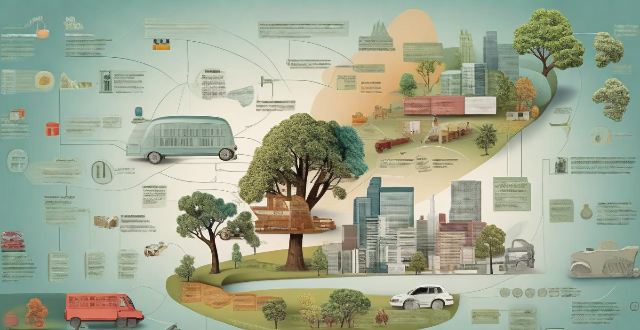
What is an economic stimulus plan ?
An economic stimulus plan is a government policy aimed at boosting a country's economy during times of slow growth or recession. The primary goal of such plans is to increase consumer spending, encourage business investments, and create jobs, thereby stimulating economic activity and promoting overall growth. Key features of an economic stimulus plan include tax cuts and rebates, government spending on infrastructure projects, monetary policy adjustments, direct assistance to businesses and individuals, and incentives for investment. Benefits of an economic stimulus plan include increased economic growth, job creation, long-term gains, and reduced poverty rates. However, potential downsides of an economic stimulus plan include national debt, inflation risks, crowding out effect, and short-term vs long-term effects. In conclusion, an economic stimulus plan is a multifaceted approach employed by governments to revive flagging economies. While these plans can have significant positive impacts on growth, employment, and overall well-being, they must be carefully designed and implemented to minimize potential drawbacks such as increased national debt and inflation risks.

How do changes in immigration policy influence economic growth ?
Changes in immigration policy can have a significant impact on economic growth by increasing the labor force, promoting diversity, increasing consumer spending, reducing wage inflation, and increasing tax revenue.

What is the outlook for the European Union's economic recovery ?
The economic recovery of the European Union (EU) depends on political stability, global economic conditions, and domestic policies. Unity among member states and effective governance are crucial for managing crises and implementing growth-promoting policies. Global trade dynamics and supply chain disruptions also play a significant role. Domestically, fiscal stimulus, structural reforms, and a balanced green transition are key. The outlook is optimistic but uncertain, with many influencing factors.
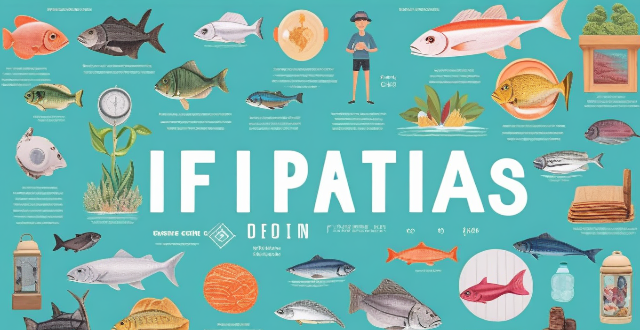
What are the economic benefits of biodiversity ?
Biodiversity plays a significant role in the global economy by providing various economic benefits. These include increased resilience to climate change, support for sustainable agriculture, tourism revenue, pharmaceutical and medical research opportunities, ecosystem services, fisheries and food security, cultural and aesthetic value, innovation and education, risk management and insurance, and trade and livelihoods. Preserving biodiversity is crucial for maintaining these economic benefits across different sectors.

What challenges do we face in implementing resource-efficient utilization globally ?
Implementing resource-efficient utilization globally presents several challenges, including lack of awareness and education, economic barriers, technological limitations, legal and policy constraints, and cultural differences. Addressing these challenges will require a multifaceted approach that involves raising awareness, providing economic incentives, investing in research and development, creating supportive policies and regulations, and fostering cross-cultural understanding and collaboration.

What are the potential economic benefits of sharing climate information ?
The potential economic benefits of sharing climate information include improved decision making through better planning and management, risk assessment and mitigation, increased efficiency and productivity, innovation and new business opportunities, and growth of the green economy. By leveraging this information effectively, businesses, governments, and individuals can adapt to changing climatic conditions while minimizing risks and maximizing economic gains.